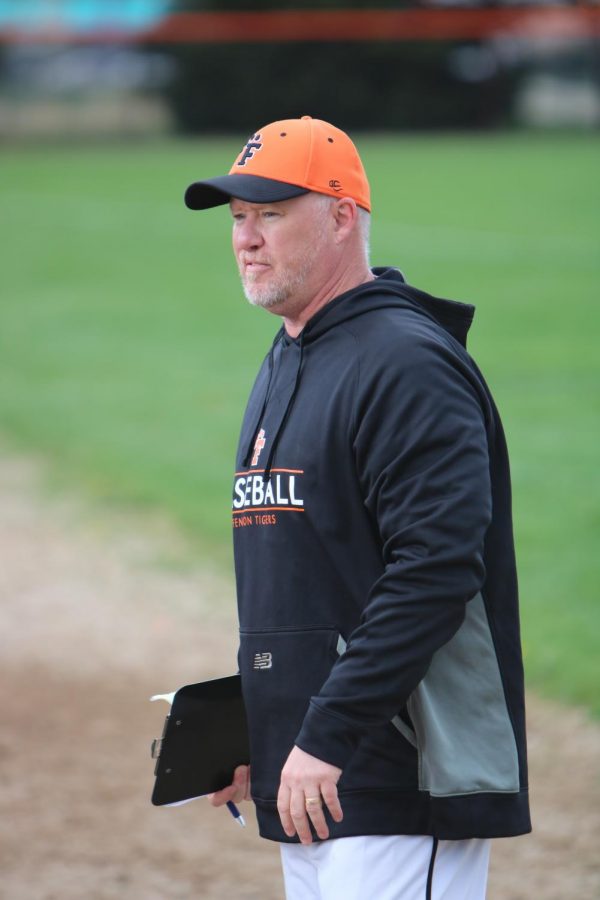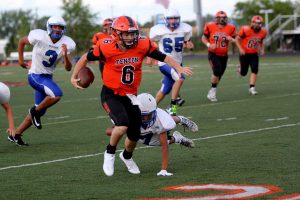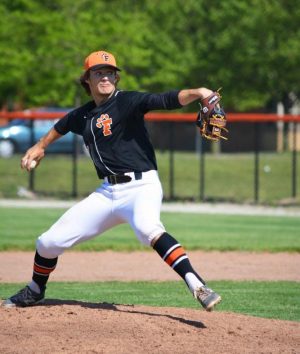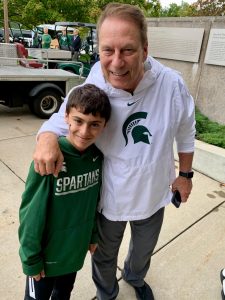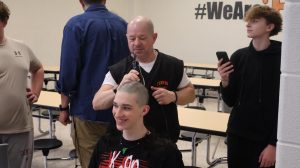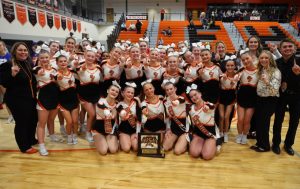Nepotism in the Eye of Sports
December 5, 2017
He slammed his fist on the wall in frustration. He had been cut from the basketball team, but of course the coach’s son had made it, no surprise there. While some of these thoughts may just be jealous remarks, nepotism- special treatment of relatives or friends- still may creep its way into sports.
“I’ve experienced the negative effects of nepotism,” freshman Olivia Herbert said. “The favored player got to call all the shots, the team members gave her more attention, she could amp them up better. Sometimes I felt like opportunities were taken away from me and given to her, even though we were pretty back-and-forth skill wise. The girls on the team didn’t talk to me as much. When I did talk, they’d non-verbally tell me to stop so I felt like I was being really annoying. They’d also hang out without me and talk about it in the group chat. I’ve had many coaches in the past that expressed nepotism, so I don’t feel as bad about it, but I do still feel left out sometimes. Although nepotism has caused me to work harder so I’d be ignored less. We turned the storage room into a practice area with a net so I could have more opportunities next season.”
In contrast, some players who know the coaches personally feel like they are trying hard to give other team members a fair chance.
“I’ve been playing soccer for twelve years,” freshman Jillian McVey said. “A couple years ago my dad was my coach, and he currently coaches soccer at FHS. When I was on his team he didn’t treat me differently. He tried to pay attention to all his players. Even though I could get help from him at home, he would stay after practices to help his players. I wouldn’t say my dad expressed favoritism towards me. He told me if I didn’t try my hardest, I wouldn’t be able to play. There would be no special treatment.”
While players may think others receive special treatment due to their relation to the coach, varsity baseball coach Shawn Lawrence feels like they are under a lot of pressure as well.
“When I have players I’m already familiar with, there’s already an idea of what they’re like, what skills they have, and it makes evaluations easier,” Shawn Lawrence said. “Being a coach’s kid puts more pressure on them, people have higher expectations and are more critical and conscious of their failures. When they are trying out for the first time, some people just assume they will get the spot. Even their teammates might be hesitant to say some things around them, afraid it might circle back to the coach. Other players might even think that coaches kids get more opportunities. But getting down to it, every kid just has different goals: some might just want to get a spot on the team, while others want to be starters and go beyond to play in college. Kids just have different ideas of what they want to do to make their season successful. I just try to maintain an atmosphere where everyone feels like they have a role and are held to the same expectations.”
With variant goals in players, some feel like they might get more opportunities. Occasionally, the reason behind coach favoritism just comes down to a matter of player effort.
“I’ve played baseball and basketball since I was five,” senior Nolan Lawrence said. “My dad is my baseball coach, but he doesn’t treat me differently from the other players. Although, I’ve been on teams where the coaches do play favorites; they let them pick their spots and play whenever they wanted. But I was 10 then and didn’t care much. And most often, the kid did deserve that position they were in. I’ve never really seen a case where a kid doesn’t belong on a team or in their spot, especially at high school level.”
McVey has noticed some challenges that coincide with the benefits of having a parent coach. Many of these noted challenges are psychological and deal with player confidence.
“There are upsides and downsides to having a parent coach,” McVey said. “You already know the coach, the skills they expect you to have, how they want you to play, and their coaching styles. When you don’t know the coach, that can be tough. But when you already know the coach, they are harder on you and have higher expectations. They push you a lot more. Some coaches do pick favorites; if you are a favorite player you might get to play more, and if you are a least favorite sometimes they yell at you more. Sometimes I worry that the other players think being related to the coach is unfair, but they don’t treat me differently. Another disadvantage in having a parent coach is that makes me question my ability— am I really good enough or is it just because my dad is the coach? Sometimes I feel like all eyes are on me, so I just have to try my best.”
Despite the remarks against coach’s kids and the challenges that some find themselves facing because they are related to the coach, some remain relatively unwavered when they take a look at their abilities.
“I think that players get criticism no matter what,” Nolan Lawrence said. “But for people who are critical because a player is related to the coach, statistics don’t lie. Even with the criticism of being related to a coach, I’m still confident in my abilities.”
Although some teachers coach their children, their focus may not be solely on their playing time. Their priorities instead lie with the success of the team as a whole.


